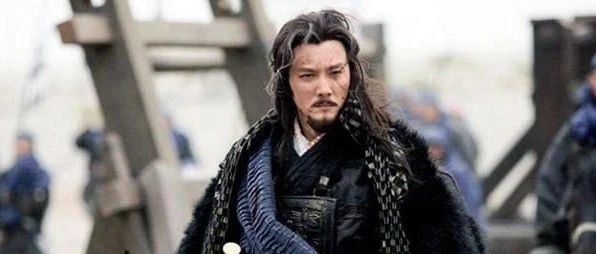WE’RE ALL PROS ALREADY
All of us are pros in one area: our jobs.
We get a paycheck. We work for money. We are professionals.
Now: Are there principles we can take from what we’re already successfully doing in our workaday lives and apply to our artistic aspirations? What exactly are the qualities that define us as professionals?
We show up every day. We might do it only because we have to, to keep from getting fired. But we do it. We show up every day.
We show up no matter what. In sickness and in health, come hell or high water, we stagger in to the factory. We might do it only so as not to let down our co-workers, or for other, less noble reasons. But we do it. We show up no matter what.
We stay on the job all day. Our minds may wander, but our bodies remain at the wheel. We pick up the phone when it rings, we assist the customer when he seeks our help. We don’t go home till the whistle blows.
We are committed over the long haul. Next year we may go to another job, another company, another country. But we’ll still be working. Until we hit the lottery, we are part of the labor force.
The stakes for us are high and real. This is about survival, feeding our families, educating our children. It’s about eating.
We accept remuneration for our labor. We’re not here for fun. We work for money.
We do not overidentify with our jobs. We may take pride in our work, we may stay late and come in on weekends, but we recognize that we are not our job descriptions. The amateur, on the other hand, overidentifies with his avocation, his artistic aspiration. He defines himself by it. He is a musician, a painter, a playwright. Resistance loves this. Resistance knows that the amateur composer will never write his symphony because he is overly invested in its success and overterrified of its failure. The amateur takes it so seriously it paralyzes him.
We master the technique of our jobs.
We have a sense of humor about our jobs.
We receive praise or blame in the real world.
Now consider the amateur: the aspiring painter, the wannabe playwright. How does he pursue his calling?
One, he doesn’t show up every day. Two, he doesn’t show up no matter what. Three, he doesn’t stay on the job all day. He is not committed over the long haul; the stakes for him are illusory and fake. He does not get money. And he overidentifies with his art. He does not have a sense of humor about failure. You don’t hear him bitching, “This fucking trilogy is killing me!” Instead, he doesn’t write his trilogy at all.
The amateur has not mastered the technique of his art. Nor does he expose himself to judgment in the real world. If we show our poem to our friend and our friend says, “It’s wonderful, I love it,” that’s not real-world feedback, that’s our friend being nice to us. Nothing is as empowering as real- world validation, even if it’s for failure.
The first professional writing job I ever had, after seventeen years of trying, was on a movie called King Kong Lives. I and my partner-at-the-time, Ron Shusett (a brilliant writer and producer who also did Alien and Total Recall) hammered out the screenplay for Dino DeLaurentiis. We loved it; we were sure we had a hit. Even after we’d seen the finished film, we were certain it was a blockbuster. We invited everyone we knew to the premiere, even rented out the joint next door for a post-triumph blowout. Get there early, we warned our friends, the place’ll be mobbed.
Nobody showed. There was only one guy in line beside our guests and he was muttering something about spare change. In the theater, our friends endured the movie in mute stupefaction. When the lights came up, they fled like cockroaches into the night.
Next day came the review in Variety: “. . . Ronald Shusett and Steven Pressfield; we hope these are not their real names, for their parents’ sake.” When the first week’s grosses came in, the flick barely registered. Still I clung to hope. Maybe it’s only tanking in urban areas, maybe it’s playing better in the burbs. I motored to an Edge City multiplex. A youth manned the popcorn booth. “How’s King Kong Lives?” I asked. He flashed thumbs-down. “Miss it, man. It sucks.”
I was crushed. Here I was, forty-two years old, divorced, childless, having given up all normal human pursuits to chase the dream of being a writer; now I’ve finally got my name on a big-time Hollywood production starring Linda Hamilton, and what happens? I’m a loser, a phony; my life is worthless, and so am I.
My friend Tony Keppelman snapped me out of it by asking if I was gonna quit. Hell, no! “Then be happy. You’re where you wanted to be, aren’t you? So you’re taking a few blows. That’s the price for being in the arena and not on the sidelines. Stop complaining and be grateful.”
That was when I realized I had become a pro. I had not yet had a success. But I had had a real failure.
我们已经都是专业人士了
我们都是一个领域的专家:我们的工作。
我们有工资。我们工作是为了钱。我们是专业人士。
现在:我们是否可以从我们在日常生活中已经成功地做的事情中吸取一些原则,并将其应用到我们的艺术抱负中?我们作为专业人士的特质到底是什么?
我们每天都来。我们这样做可能只是因为我们不得不这样做,以免被炒鱿鱼。但我们做到了。我们每天都来。
无论如何我们都会出现。无论疾病还是健康,无论遇到什么困难,我们都摇摇晃晃地走进工厂。我们这样做可能只是为了不让同事失望,或者出于其他不那么高尚的原因。但我们做到了。无论如何我们都会出现。
我们整天都在工作。我们的思想可能会飘忽不定,但我们的身体仍在工作。当电话响的时候,我们接起电话,当客户寻求我们的帮助时,我们帮助他。汽笛一响我们就回家。
我们的任务是长期的。明年我们可能去另一个工作,另一个公司,另一个国家。但我们还会继续工作。在我们中彩票之前,我们是劳动力的一部分。
我们面临的风险是巨大而真实的。这关乎生存,关乎养家糊口,关乎教育孩子。它是关于吃。
我们接受劳动报酬。我们不是来玩的。我们工作是为了钱。
我们不会过分认同自己的工作。我们可能会为自己的工作感到自豪,我们可能会加班到很晚,周末也可能会来上班,但我们意识到我们不是自己的职位描述。另一方面,业余爱好者过分看重自己的爱好和艺术抱负。他以此来定义自己。他是音乐家、画家、剧作家。抵抗喜欢这件事。抵抗知道,业余作曲家永远不会创作他的交响乐,因为他对交响乐的成功过于投入,对它的失败过于恐惧。这位业余爱好者如此认真地对待这件事,以致于他瘫痪了。
我们掌握了工作的技巧。
我们对工作有幽默感。
在现实生活中,我们会受到赞扬或责备。
现在考虑一下业余画家:有抱负的画家,想成为剧作家的人。他如何继续他的职业生涯?
第一,他不是每天都来。第二,无论如何他都不会出现。第三,他不是整天都在工作。他没有长期的承诺;对他来说,赌注是虚幻而虚假的。他没有钱。他过度认同自己的艺术。他对失败没有幽默感。你不会听到他抱怨:“这该死的三部曲简直要了我的命!”相反,他根本不写自己的三部曲。
这个业余爱好者没有掌握他的艺术技巧。他也不会在现实世界中暴露自己的判断力。如果我们把诗给朋友看,朋友说,“太棒了,我爱它”,这不是真实世界的反馈,这是我们的朋友对我们很好。没有什么比现实世界的验证更能赋予人力量,即使它是为了失败。
在经历了17年的努力之后,我的第一份职业写作工作是拍摄一部名为《金刚历险记》的电影。我和当时的拍档Ron Shusett (Ron Shusett是一位才华横溢的作家和制片人,也曾制作过《异形》和《全面回忆》)为迪诺·德劳伦蒂斯(Dino DeLaurentiis)设计了剧本。我们爱它;我们确信我们成功了。甚至在我们看完这部电影后,我们也确信它是部轰动一时的电影。我们邀请了所有认识的人来参加首映礼,甚至还把隔壁的酒吧租了出去。早到,我们警告我们的朋友,这个地方会被包围。
但是没有人来。在我们客人旁边排着队的只有一个人,他在咕哝着关于零钱的事。在剧院里,我们的朋友在无声的麻木中忍受着电影。灯一亮,他们就像蟑螂一样逃进了黑夜。
第二天传来了各种各样的评论:“……罗纳德·舒泽特和史蒂芬·普雷斯菲尔德;为了他们的父母,我们希望这些不是他们的真名。”当第一周的票房收入开始增长时,这部电影的票房成绩勉强达标。我仍然抱着希望。也许只是在城市地区,也许在郊区玩得更好。我开车去了一个边缘城市。一个年轻人操纵着爆米花摊。“金刚怎么样了?””我问。他反对闪过。“没看。这糟透了。”
我崩溃了。在这里,我42岁,离异,没有孩子,放弃了所有正常的人类追求去追求成为一名作家的梦想;现在,我终于在一部由琳达·汉密尔顿主演的好莱坞大片中崭露头角,接下来会发生什么呢?我是个失败者,一个骗子;我的生命毫无价值,我也是。
我的朋友托尼·凯珀尔曼(Tony Keppelman)问我是否要辞职,以此让我摆脱了困境。当然,不!“快乐一些。你现在就在你一直想去的地方,不是吗?当然,你受到了一些打击。但这就是在赛场上的代价。不要抱怨,要心存感激。”
就在那时,我意识到自己成了一名专业人士了。我还没有成功。但我真的失败过了。












